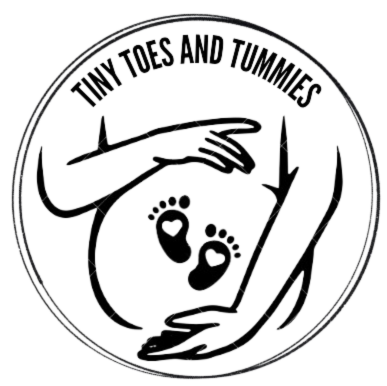The first trimester of pregnancy, from conception to the end of the 12th week, is a period of remarkable development and transformation. This is when a fertilized egg evolves into a fetus, with all major organs beginning to take shape. The changes in body in the first trimester are not only experienced by the baby but also by the mother, as both undergo rapid growth. This trimester is often filled with anticipation as the early signs of pregnancy start to show. Additionally, this is a crucial period when the risk of miscarriage significantly decreases, and the baby’s heartbeat may even be audible during an ultrasound scan.
Physical Changes
Weight Gain
During the first trimester, the body begins to prepare for the journey ahead. One of the most noticeable changes is weight gain. The body starts storing fat to provide nourishment for the baby during pregnancy and breastfeeding. While weight gain varies from person to person, it’s a normal and necessary part of pregnancy. Some women may not notice significant weight gain due to morning sickness and food aversions.
Breast Changes
The breasts undergo significant changes during the first trimester. Hormonal fluctuations cause the breasts to swell, feel tender, and even increase in size. This is the body’s way of preparing for the upcoming breastfeeding phase. Some women may also notice their areolas darken, another sign of the body preparing for breastfeeding.
Skin and Hair Changes
The increased blood volume and hormonal shifts can lead to changes in the skin and hair. Some women experience a ‘pregnancy glow’, a term often used to describe the radiant, flushed look due to increased blood flow. Others may experience skin sensitivity or changes in hair texture. These changes, while sometimes surprising, are a normal part of the pregnancy journey.
Hormonal Changes
Human Chorionic Gonadotropin (hCG): The Pregnancy Hormone
hCG is a hormone produced after the fertilized egg implants in the uterus. It’s often called the ‘pregnancy hormone’ because it’s responsible for maintaining the pregnancy and stimulating the ovaries to produce other hormones. It’s also the hormone that pregnancy tests detect to confirm pregnancy.
Progesterone and Estrogen: Key Players
Progesterone and estrogen are two hormones that are really important during the first three months of pregnancy. The job of progesterone is to make the lining of the womb thicker. This helps create a cozy and supportive home for the growing baby. On the other hand, estrogen has a different job. It helps grow the placenta. The placenta is a super important organ that delivers oxygen and nutrients to the baby. So, both these hormones, progesterone and estrogen, have key roles in making sure the baby grows healthy and strong.
Emotional and Psychological Changes
Mood Swings
Hormonal changes can lead to mood swings during the first trimester. It’s common for pregnant women to experience a range of emotions, from joy and excitement to anxiety and irritability. These feelings are normal and part of the pregnancy journey.
Anxiety and Body Image
Pregnancy, especially for first-time mothers, can bring about feelings of anxiety. The physical changes and the anticipation of becoming a parent can be overwhelming. Changes in body shape and size can also impact a woman’s body image and self-esteem. It’s important to remember that these feelings are common and there are resources available to help navigate these emotions.

Health and Wellness: Taking Care of You and Your Baby
Regular Check-ups: Ensuring a Healthy Pregnancy
Regular prenatal check-ups are crucial during the first trimester. These visits allow healthcare professionals to monitor the health of both the mother and the baby. They also provide an opportunity to discuss any concerns or questions you may have.
Balanced Diet and Rest: The Foundations of Health
Eating a balanced diet and getting plenty of rest can help manage the physical and emotional changes during the first trimester. Proper nutrition is essential for the baby’s development, and adequate rest can help the body cope with the changes it’s going through.
The first trimester is a time of profound change and growth. It’s a journey of transformation, anticipation, and wonder. Every pregnancy is unique, and so are the experiences of every expectant mother. Always remember to reach out to a healthcare professional for advice and support during this incredible journey. Pregnancy is a beautiful journey, and the first trimester is just the beginning.
Frequently Asked Questions
Now that we’ve explored the journey of the first trimester in depth, you may still have a few questions lingering in your mind. Pregnancy, after all, is a complex and unique experience, and it’s only natural to seek more information. In this next section, we’ve compiled a list of Frequently Asked Questions (FAQs) that delve into some of the most common inquiries about the changes in the body during the first trimester. Let’s quench that curiosity and dive right in!
Q. What causes morning sickness in the first trimester?
A. Morning sickness is believed to be caused by the rapid increase in the body’s level of hCG hormone. Despite its name, morning sickness can occur at any time of the day.
Q. Is it normal to feel extremely tired in the first trimester?
A. Yes, fatigue is very common in the first trimester due to high levels of pregnancy hormones circulating in your body.
Q. Why do I need to urinate more frequently in the first trimester?
A. The increase in blood flow during pregnancy stimulates the kidneys to filter more fluid, resulting in more fluid in your bladder and more trips to the bathroom.
Q. What dietary changes should I make in the first trimester?
A. It’s important to eat a balanced diet rich in protein, calcium, iron, and folic acid. Avoid foods that are high in mercury and raw or undercooked foods to prevent foodborne illnesses.
Q. Is it normal to have food cravings or aversions in the first trimester?
A. Yes, many women experience food cravings or aversions due to hormonal changes. It’s okay to indulge in cravings in moderation but try to maintain a balanced diet.
Q. Why am I experiencing constipation in the first trimester?
A. The increase in progesterone during pregnancy slows down the movement of food through your digestive tract, which can lead to constipation.
Q. Why do I have a heightened sense of smell in the first trimester?
A. The exact reason isn’t known, but it’s likely due to the increase in hormones. This heightened sense of smell can also contribute to food aversions and nausea.
Q. What can I do to alleviate morning sickness?
A. Eating small, frequent meals, staying hydrated, and avoiding triggers can help. Ginger and vitamin B6 may also provide relief. Always consult your healthcare provider before taking any supplements.
Q. Is it normal to have a lower sex drive in the first trimester?
A. Yes, many women experience a decrease in sex drive during the first trimester due to fatigue, nausea, and changes in hormonal levels. It’s perfectly normal and usually temporary.
Q. What kind of exercise is safe during the first trimester?
A. Most forms of exercise are safe during the first trimester, as long as you’re comfortable and don’t overdo it. Walking, swimming, and prenatal yoga are all excellent choices. However, it’s always best to consult with your healthcare provider before starting any new exercise regimen during pregnancy.
Q. Is it normal to have cramps during the first trimester?
A. Yes, mild cramping can be normal as your uterus starts to grow and change. However, severe or persistent pain should be reported to a healthcare provider.
Q. Why am I experiencing bloating in the first trimester?
A. Bloating is common in the first trimester due to hormonal changes that slow down your digestive system. Eating smaller, more frequent meals can help.
Q. What causes increased discharge during the first trimester?
A. Increased estrogen levels can cause your body to produce more cervical mucus, leading to increased vaginal discharge. This is normal, but if the discharge is colored, itchy, or has a strong odor, consult a healthcare provider.





